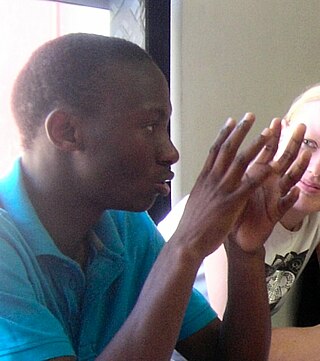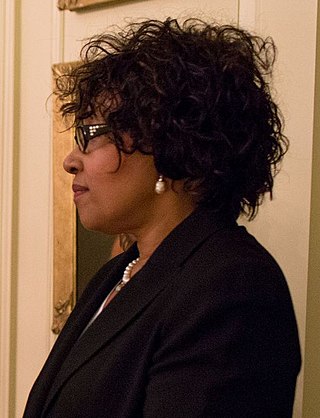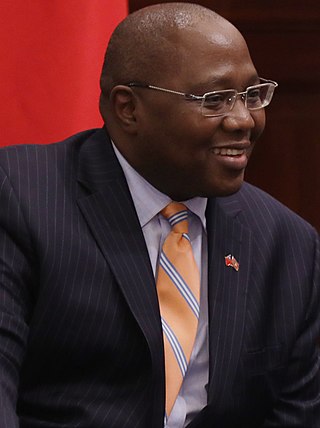The Umbutfo Eswatini Defence Force (UEDF) is the military of the Southern African Kingdom of Eswatini (Swaziland). It is used primarily during domestic protests, with some border and customs duties; the force has never been involved in a foreign conflict. The army has struggled with high rates of HIV infection. Since measures were put in place the rate is dropping.

Artifacts indicating human activity dating back to the early Stone Age have been found in the Kingdom of Eswatini. The earliest known inhabitants of the region were Khoisan hunter-gatherers. Later, the population became predominantly Nguni during and after the great Bantu migrations. People speaking languages ancestral to the current Sotho and Nguni languages began settling no later than the 11th century. The country now derives its name from a later king named Mswati II. Mswati II was the greatest of the fighting kings of Eswatini, and he greatly extended the area of the country to twice its current size. The people of Eswatini largely belong to a number of clans that can be categorized as Emakhandzambili, Bemdzabu, and Emafikamuva, depending on when and how they settled in Eswatini.

Mswati III is the Ngwenyama (King) of Eswatini and head of the Swazi royal family. He heads an absolute monarchy, as he has veto power over all branches of government and is constitutionally immune from prosecution.
Eswatini Broadcasting and Information Service is the state-owned broadcast and print information provider of Eswatini, which essentially wields total control over all media within the country. It was founded in 1966 as a radio broadcaster, and was merged with print media in the early 1970s. It is a member of the Commonwealth Broadcasting Association. Since 1991, it has been under the Ministry of Broadcasting, Information and Tourism, and is responsible for:
- Radio and television broadcasting services;
- Newspapers, magazines, and other printed governmental publications;
- Government information services, including internet;
- Accreditation of foreign news reporters and correspondents operating in Eswatini.

The People's United Democratic Movement is the largest opposition party in Eswatini. It is a democratic socialist party. Formed in 1983 at the University of Eswatini, it is led by Mlungisi Makhanya.

Prince Cedza Dlamini of Eswatini (formerly Swaziland), otherwise known as Prince Cedza (born 24 February 1976), grandson of King Sobhuza II of Swaziland and step-grandson of Nelson Mandela, is a humanitarian, youth activist, spokesman for the United Nations' Millennium Development Goals, and the founder of the Ubuntu Institute for Young Social Entrepreneurs. His work promotes future international cooperation by initiating and supporting global networks of young leaders through which they can work collectively to address such current world problems as HIV/AIDS, poverty, hunger and illiteracy. Prince Cedza also advocates stronger ties between the United States and South Africa, occupying a seat as a director on the board of the South African Chamber of Commerce in America.
Dr. Moses Mathendele Dlamini is a Swazi political figure. He was a Senator and was acting chief of Mbelebeleni in the Shiselweni District. He was also Swaziland's Minister of Foreign Affairs and Trade from 2006 to 2008. Since October 2008 he has been serving in king Mswati III's advisory council or Swaziland national council standing committee(Liqoqo supreme council). Currently he is a member of the Ludzidzini Council 2022-2023
Kirsti Lintonen was the Permanent Representative of Finland to the United Nations for the period 2005–2009. She presented her credentials to United Nations Secretary-General Kofi Annan on February 15, 2005. Kirsti Lintonen possesses a master's degree in political science and entered the Finnish Ministry for Foreign Affairs in 1971. She became an ambassador in Windhoek, Namibia in 1990. In 1994 she became the Deputy Director General for Political Affairs within the Ministry, and in 1996 she became Under-Secretary of State. From 2000 until her appointment to the UN, she had been Finland's ambassador to South Africa, Botswana, Lesotho, Mauritius, Namibia, and Swaziland. She was accredited to the Southern African Development Community.
In Eswatini, no king can appoint his successor. Instead, on the demise of a king, the Liqoqo, an independent traditional council, decides which of his wives shall be "great wife" and Indlovukazi, 'She-Elephant'. The son of the chosen Indlovukazi will automatically become the next king.
Dlamini is an African clan and surname, common in South Africa and Eswatini. It is the most common surname in South Africa. Most people whose surname is Dlamini are also members of the Dlamini clan.

Maxwell Dlamini is the Secretary General of SWAYOCO and the former President of the University of Swaziland Students Representative Council. During the so-called "April 12 Swazi Uprising" in April 2011, he and fellow activist Musa Ngubeni were arrested on charges of possession of explosives under Sections 8 and 9 of Swaziland’s Explosives Act 4 of 1961. They were both allegedly tortured and were subsequently refused bail. They were imprisoned at the Manzini Remand Centre.

Princess Zenani Mandela-Dlamini is a South African diplomat and traditional aristocrat. She is the sister-in-law of the King of eSwatini, Mswati III, and the daughter of Nelson Mandela and his former wife, Winnie Mandela.
Eswatini formerly known as Swaziland now officially the Kingdom of Eswatini is landlocked country in Southern Africa.

Ambrose Mandvulo Dlamini was a Swazi business executive who served as the tenth prime minister of Eswatini, holding the office from October 2018 until his death on 13 December 2020.

Eswatini nationality law is regulated by the Constitution of Eswatini, as amended; the Swaziland Citizenship Act, and its revisions; and various international agreements to which the country is a signatory. These laws determine who is, or is eligible to be, a national of Eswatini. The legal means to acquire nationality, formal legal membership in a nation, differ from the domestic relationship of rights and obligations between a national and the nation, known as citizenship. Nationality describes the relationship of an individual to the state under international law, whereas citizenship is the domestic relationship of an individual within the nation. Eswatini nationality is typically obtained under the principle of jus soli, i.e. by birth in Eswatini, or jus sanguinis, born to parents with Eswatini nationality. It can be granted to persons with an affiliation to the country, or to a permanent resident who has lived in the country for a given period of time through naturalisation or the traditional khonta system.
Sidumo (Sdumo) Mbongeni Dlamini is a South African politician who has been a Member of Parliament (MP) for the African National Congress.
Mlungisi Makhanya is a Swazi politician and human rights defender. He is the president of the People's United Democratic Movement. He previously served as Secretary General of the party during the presidency of longtime leader Mario Masuku.

Zena Soraya Mahlangu is a Swazi royal and the tenth wife of Mswati III. In 2002, when she was eighteen years old, she was abducted by two of the king's men and taken to the Ludzidzini Royal Village to accept royal duties and prepare to become the next royal bride. Her abduction led to a court case and international scandal, with various trade unions, organizations, and public figures, including Amnesty International, condemning the king and royal family's actions. She officially married the king in 2010, taking the royal title Inkhosikati LaMahlangu.






